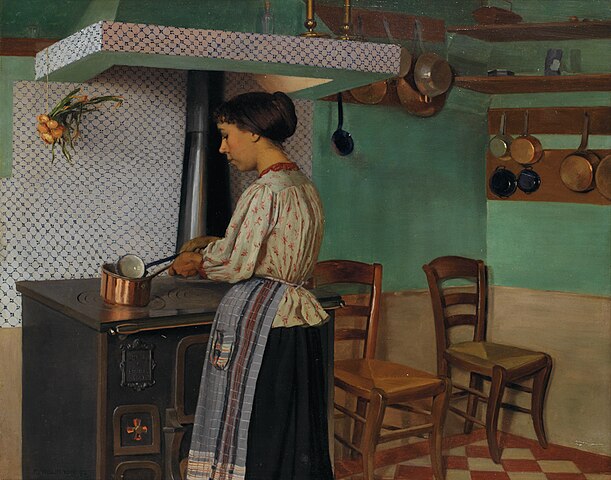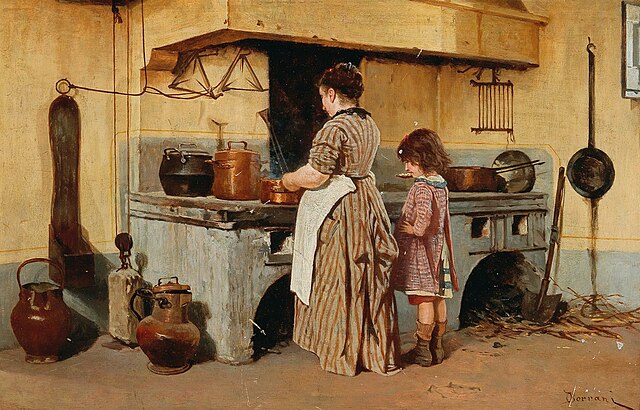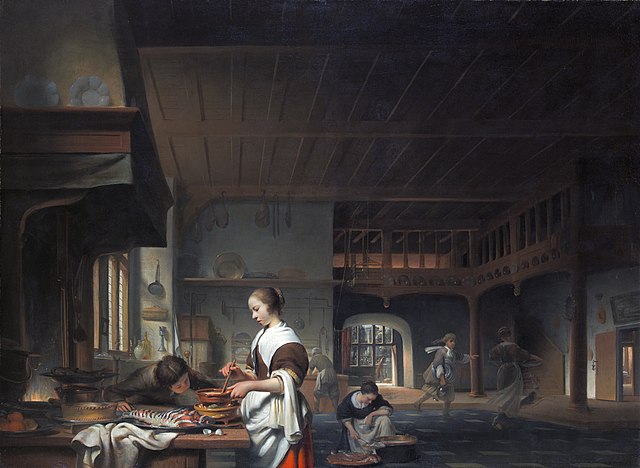
Thammasat University students interested in ecology, environmental studies, food, cooking, economics, sociology, urban planning, and related subjects may find it useful to participate in a free 20 March Zoom webinar on Engaging the Entire Humanitarian Clean Cooking System: Unlocking Institutional Scale.
The event, on Wednesday, 20 March 2024 at 7pm Bangkok time, is presented by the Institute of Advanced Studies (IAS), Loughborough University, Loughborough, Leicestershire, the United Kingdom.
As explained on the website of the Netherlands Enterprise Agency, clean cooking refers to people using cleaner fuels and energy-efficient modern stoves:
- Around four billion people lack access to modern energy cooking services.
- Instead, they cook on traditional biomass or polluting fuels.
- Replacing these practices with clean cooking solutions has the potential to reduce smoke emissions in kitchens and the amount of biomass needed.
- This will lead to a reduction in deaths from smoke-related illnesses.
- Household air pollution causes more than four million deaths annually.
- Clean cooking also reduces the damage caused to the environment and climate change.
The TU Library collection includes several books about different aspects of biomass fuels.
Students are invited to register at this link:
https://us06web.zoom.us/webinar/register/WN_c9yBEiecS_SmdWEqp52mfQ#/registration
The speaker will be Dr. Benjamin Robinson
According to the IAS website, Dr. Robinson
has a passion for innovations which can create transformative pathways to a sustainable future for all. His interdisciplinary background as an academic, practitioner, and entrepreneur enabled him to develop strategic and technical skills that cover a range of energy technologies and methodologies.
Through his work alongside international development and humanitarian initiatives ranging from 20K to 2M USD he has cultivated a diverse range of practical skills as well as a deep appreciation of the people and cultural systems that influence project sustainability. Ultimately, Ben has devoted his working life to creating, managing, and coordinating energy systems and services that benefit others to accelerate climate solutions and create a more just world.
Currently, Ben’s main roles are as the Energy Team lead at social innovation consultancy, Outsight International, and as an independent Energy Expert working with the International Development and Humanitarian energy sector to create and deliver innovative ecosystems that embed the voices of the marginalised groups directly in the conceptualisation, implementation, and evaluation of energy programs. He is presently a co-investigator on the 1.55M USD InnovateUK Smart Biogas III Project. In the last few years Ben has worked on three large scale projects, the Humanitarian Energy and Energy for Displacement Project, the InnovateUK Smart Biogas II Project, and IOMs market-based Humanitarian Energy project in Mozambique (in partnership with NORCAP).
In addition to other smaller energy projects (such as with the Humanitarian Innovation Fund), he is an Honorary Research Fellow at Coventry University, an Honorary Research Associate at the University of Nottingham, and a fellow at the ZINC Venture Builder Environment program.

The event website further explains:
The vast majority of the 110 million forcibly displaced people on our planet do not have access to modern, reliable, and sustainable energy systems and services. Currently, access energy across the humanitarian system relies on diesel powered generators – yet, this is not sufficient. People are forced to take matters into their own hands relying on polluting, often unsustainably sourced, and unhealthy fuels for their heating, lighting, and cooking needs. Despite the cost of renewable energy technologies falling, the uptake of these “cleaner” solutions has been low across the humanitarian system, especially when considering clean cooking technologies at the institutional scale. This seminar will explore the state of the humanitarian energy sector, the role of clean cooking, and how the institutional scale may unlock more efficient and effective pathways to the completion of UN SDG7 – sustainable energy for all.
The Netherlands Enterprise Agency website adds:
Clean cooking has been on the development agenda for decades. But only recently has the topic become a major priority on the global development agenda as part of Sustainable Development Goal (SDG) 7: affordable and clean energy. The Energising Development programme (EnDev) has been a pioneer in the clean cooking sector since 2005. The programme supports market development in many countries in Asia, Africa and Latin America. It focuses on local entrepreneurship and capacity building throughout the sector.
In recent years, the global clean cooking sector has changed significantly. It has moved away from an artisanal-focused sector only offering traditional and improved cookstoves. It is now a modern, professional and diverse sector, providing a broad range of solutions to diverse consumer groups. Overall, the sector has developed in business model innovation, finance solutions and product development.
The current clean cooking situation
In developing countries, most of the energy households use is for cooking. This makes cooking the most energy-intensive household activity. Worldwide, 4 billion people still lack access to clean, efficient, convenient, safe, reliable and affordable cooking energy. People use polluting open fires and inefficient stoves. This is either due to habit, lack of alternatives or cost. These inefficient cooking methods are harmful to health and delay economic and social development in developing countries. Examples of polluting and inefficient cooking methods include 3-stone woodfires or simple clay and metal stoves, which use wood or charcoal […]

Which countries still need access to clean cooking?
Energy access got a prominent place on the development agenda in 2015. This was when the United Nations committed to Sustainable Development Goal 7: affordable and clean energy. Over the past years, the clean cooking sector has evolved quickly. Still, today nearly 4 billion people do not have access to modern energy cooking services. But there are big differences globally in the types of access people have. The population has grown faster than the number of people switching to clean cooking solutions.
Developing countries in Asia
The majority of those without access to clean cooking live in countries in Asia. There, 1.6 billion people lack clean cooking facilities. In fact, 7 times more people lack clean cooking access than lack electricity in this region. Still, the latest developments are promising; 670 million people have gained access since 2010.
India
In India, around 85% of households had access to LPG by March 2020. The majority of those without an LPG connection said the connection or fuel costs are too expensive. Still, the use of LPG as the main cooking fuel in Indian households increased from 28.5% in 2011 to 71% in 2020. Despite increased LPG access, 38% of Indian homes in mainly rural areas combine the use of LPG with traditional solid fuels. This jeopardises the health benefits. The combined fuel use is mainly due to high cylinder refill prices. In India, SDG 7 Results supports Greenway Grameen. This organisation supplies improved cookstoves to remote households.
China
Around 544 million people, about one-third of the population, still rely on solid fuels like coal and biomass for cooking and heating in China. Many of these households are in rural areas and will likely continue to use solid fuels. Switching to modern energy alternatives is more expensive for them than using solid fuels. Still, China’s official statistics show diversification in the energy sources the rural population uses for cooking. From 2006 to 2016, many Chinese farmers shifted from relying on grass, firewood and coal to a good variety of cooking fuels. Also, natural gas infrastructure development is helping reduce the use of biomass and kerosene.
Several other developing countries in Asia have also been promoting clean cooking. These countries use different methods to advance and promote clean cooking, depending on the national context.

(All images courtesy of Wikimedia Commons)
